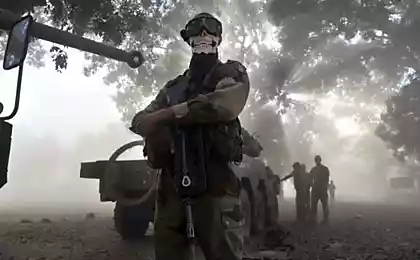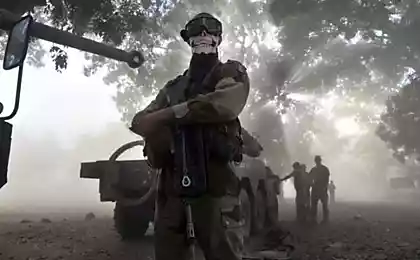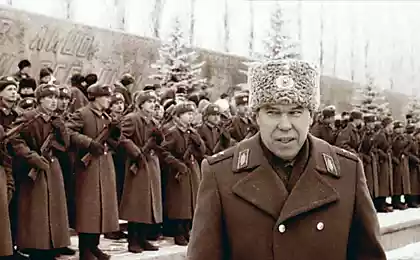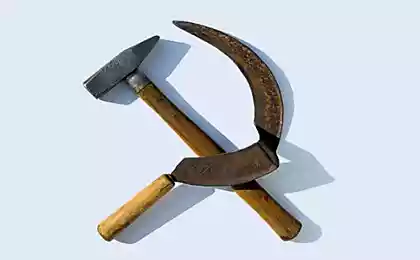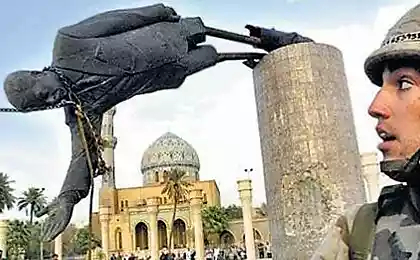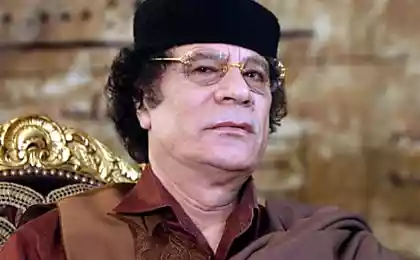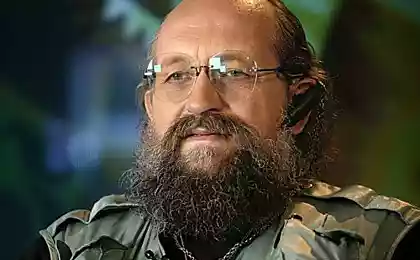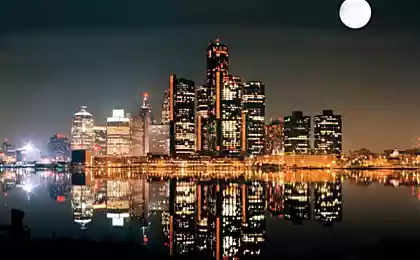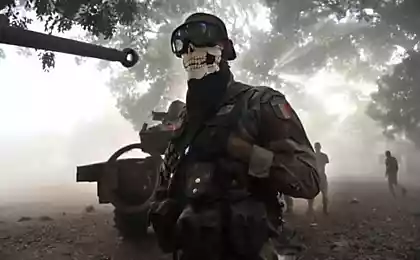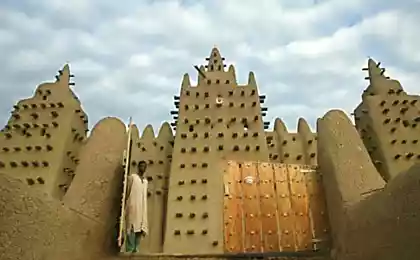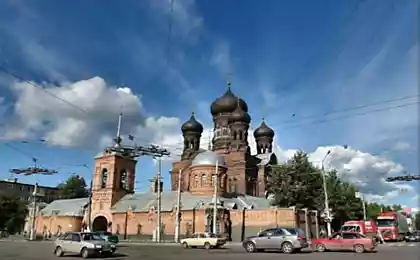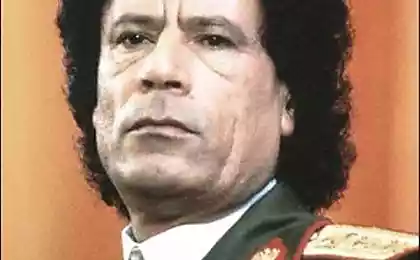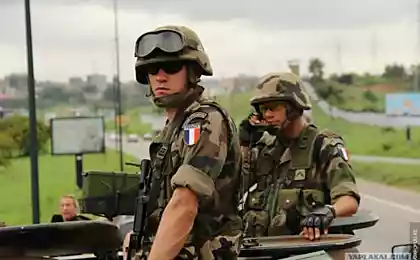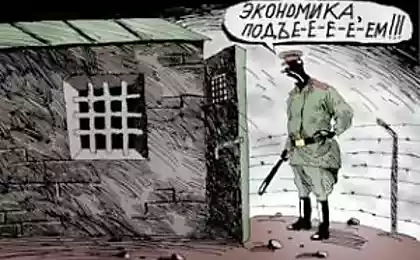645
Mali after coup
The crisis in Mali is due to several reasons: lack of food security and desertification linked to climate change; an incomplete transition to democracy and the growth of populations at risk of unemployment. The political system is weakened Mali coup, and the government is unable to gain access to the country's northern region, where came to power radical Islamists are receiving financial assistance from abroad.
In addition to this, the region is suffering from a massive food crisis. Problems Mali wave of the global community, for two reasons. First, Mali - this is not a mythical state, which is isolated from the world, so the political crisis in the country threaten the stability of the region. Second, instability in combination with the food crisis will lead to an acute humanitarian problem. Humanitarian organizations have applied considerable efforts to meet the basic needs of the population.
Gold and cotton industry in Mali are working relatively well, as mines and enterprises are located in the south of the country, where the situation is relatively stable. Mali needs to return to civilian rule through elections and regain control of the northern desert. Stability in Mali, which is the third largest gold producer in Africa, is important for the global gold market, and to a lesser extent - for the cotton market.
bigpicture.ru
Illegal miner stands near the place where gold is washed in Kalan, Mali, 26 August 2012. (Joe Penney / Reuters)
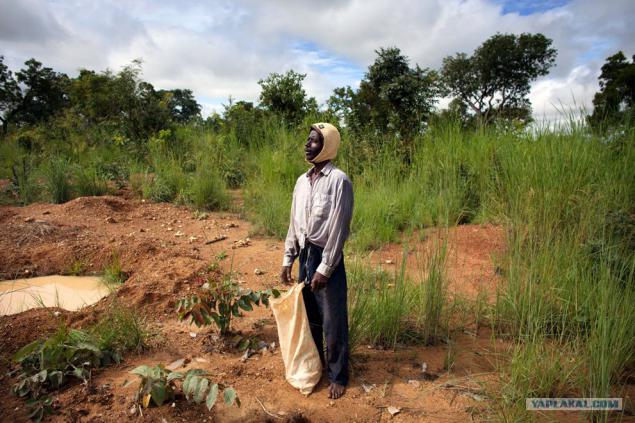
Small gold trader Fofana Ali sitting around waiting for the goods of gold mines in Kalan. (REUTERS / Joe Penney)
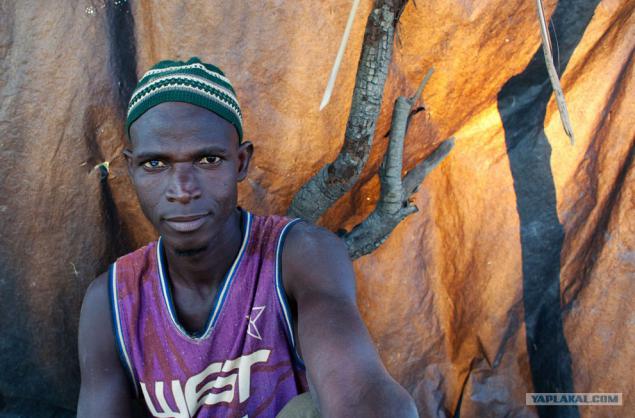
Mahamadou Diarra miners on a small mine in Kalan, 26 August 2012. Gold production in Mali is restored and it is estimated that it will amount to around 500 tonnes for 2012. (REUTERS / Joe Penney)

Shakhtar Bangale Sidibe, 29 years old, with his pickaxe is preparing to go to work at sea otters, 26 August 2012. (REUTERS / Joe Penney)
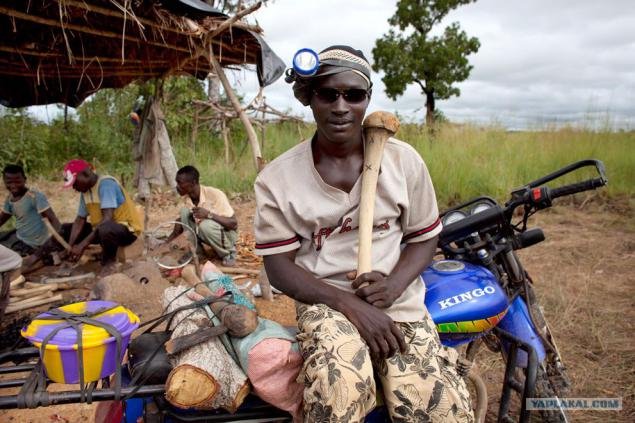
Miner looks in the mine, where his partner, Kalana. (REUTERS / Joe Penney)
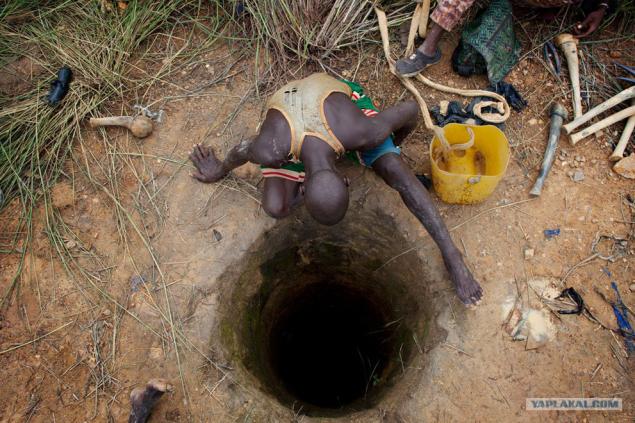
People walk past the Grand Mosque in the city of Djenne, which is listed as a UNESCO World Heritage Site. In previous years the mosque annually visited by about 10 thousand tourists. After the coup in Mali, in which the Islamists took control of two-thirds of the northern territories of the country, from the end of March this year, visited the mosque at least twenty tourists. (Joe Penney / Reuters)

Traditional window in Moorish style on the building of Islamic educational institution in Djenne, Mali, September 1 2012. (Joe Penney / Reuters)

Sisters Takia (left), 20 years old, and Fatimata Uollet Mohammed, 18, in his tent in a refugee camp in southern Mauritania Mbera, May 23, 2012. In March, Takia and Fatimata with her parents and five brothers and sisters left their home in Leray. Mbera a refugee camp for people fleeing violence in northern Mali. It is home to over 64,000 people, according to the Office of the High Commissioner for Refugees. Most camp residents live in tents, which they donated to UNHCR, some living outside the official territory of the informal structures made of absolutely any material that could be found. (REUTERS / Joe Penney)
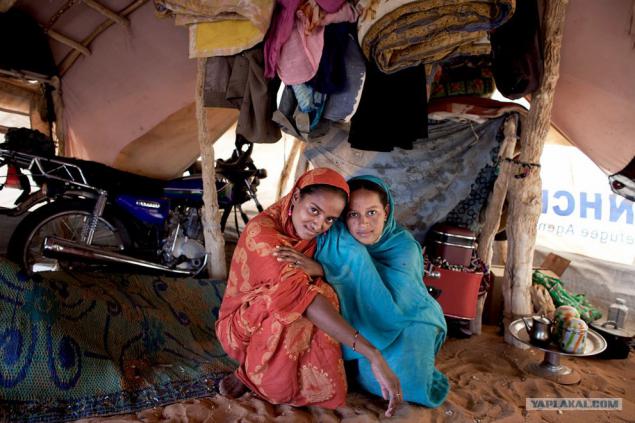
The head of conservation at the library Manuscipts Abubakar Yaro sitting next to pieces of wood, on which were written verses from the Quran in Djenne, September 1, 2012. In Djenne is thought to be stored for at least 10 thousand manuscripts of 14-20 centuries. Librarians from the northern Malian city of Timbuktu, Islamists besieged in April under the leadership of al-Qaeda, calling for the digitization of manuscripts. (REUTERS / Joe Penney)
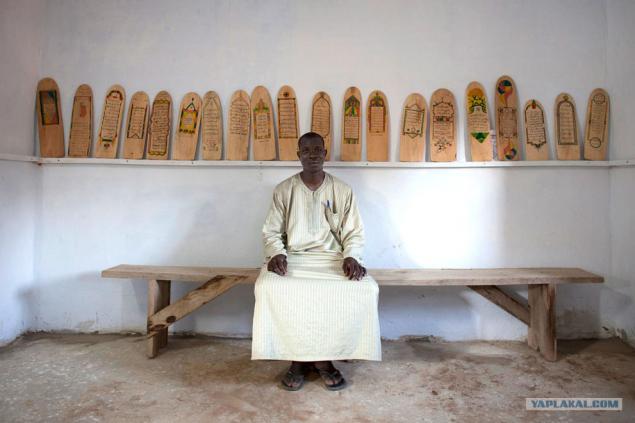
Workers at the plant Malian company producing animal feed Jacob Traore (left) and Amadou Maiga in Kutiale August 31, 2012. The plant, which is one of the largest manufacture of animal feed in Mali, lost, according to managing director Daoud Touré, at least 2 billion CFA francs (US $ 4 million) in connection with the coup d'etat. More than 65 percent of its customers live in the north, which is now dominated by Islamists. According Toure, the company currently prepared about 10 thousand tons of grain, which in normal times would have long been sold out. (REUTERS / Joe Penney)

Company logo Badenya, painted on the wall of a factory for the production of animal feed and vegetable oil in Kutiale, August 31, 2012. After the military coup in Mali in late March, the energy crisis has forced the company to close the plant for two months, after which she also suffered heavy losses connection with the seizure of the north of the country, where the majority of buyers of fodder for animals, the Islamists. (REUTERS / Joe Penney
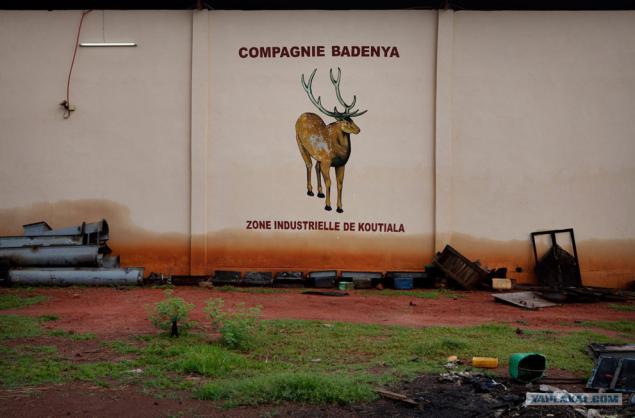
Work follows the process of making plastic bags for storage of cotton, at the company Badenya in Kutiale August 31, 2012. (REUTERS / Joe Penney)
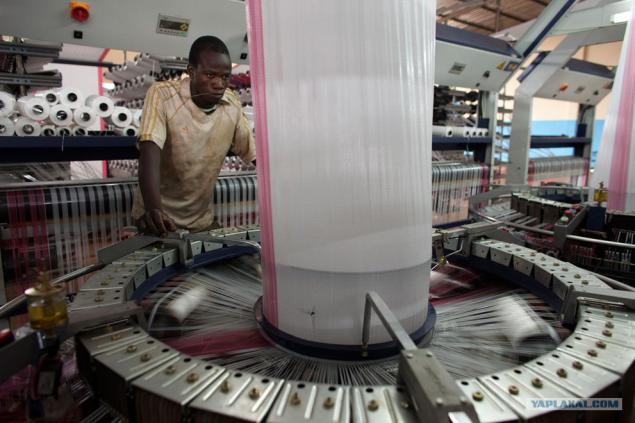
CEO Badenya Mustafa Kone in his office in Kutiale August 31, 2012. (REUTERS / Joe Penney)
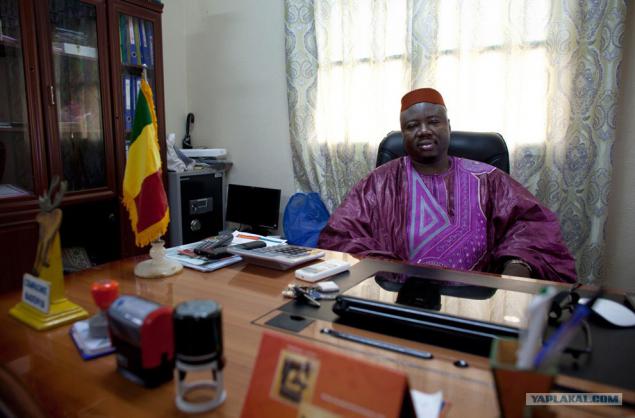
. Abandoned conference hall in the biggest hotel in Djenne Le Campement, September 2, 2012. Le Campement, which opened in 1994, closed almost completely except for a few rooms after the coup. (REUTERS / Joe Penney)

A woman walks near the Great Mosque of Djenne on market day in Djenne, September 2, 2012. (Joe Penney / Reuters)
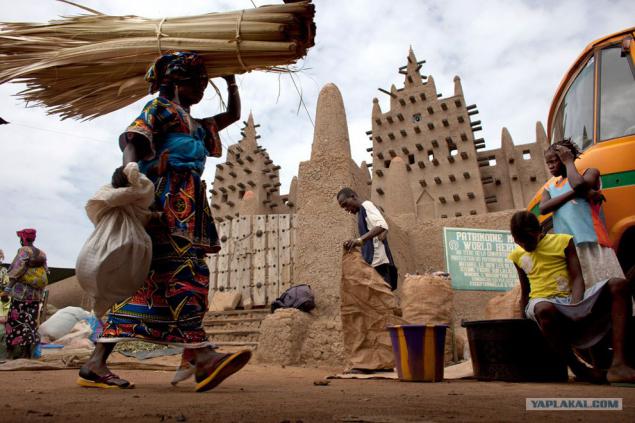
Source:
In addition to this, the region is suffering from a massive food crisis. Problems Mali wave of the global community, for two reasons. First, Mali - this is not a mythical state, which is isolated from the world, so the political crisis in the country threaten the stability of the region. Second, instability in combination with the food crisis will lead to an acute humanitarian problem. Humanitarian organizations have applied considerable efforts to meet the basic needs of the population.
Gold and cotton industry in Mali are working relatively well, as mines and enterprises are located in the south of the country, where the situation is relatively stable. Mali needs to return to civilian rule through elections and regain control of the northern desert. Stability in Mali, which is the third largest gold producer in Africa, is important for the global gold market, and to a lesser extent - for the cotton market.
bigpicture.ru
Illegal miner stands near the place where gold is washed in Kalan, Mali, 26 August 2012. (Joe Penney / Reuters)

Small gold trader Fofana Ali sitting around waiting for the goods of gold mines in Kalan. (REUTERS / Joe Penney)

Mahamadou Diarra miners on a small mine in Kalan, 26 August 2012. Gold production in Mali is restored and it is estimated that it will amount to around 500 tonnes for 2012. (REUTERS / Joe Penney)

Shakhtar Bangale Sidibe, 29 years old, with his pickaxe is preparing to go to work at sea otters, 26 August 2012. (REUTERS / Joe Penney)

Miner looks in the mine, where his partner, Kalana. (REUTERS / Joe Penney)

People walk past the Grand Mosque in the city of Djenne, which is listed as a UNESCO World Heritage Site. In previous years the mosque annually visited by about 10 thousand tourists. After the coup in Mali, in which the Islamists took control of two-thirds of the northern territories of the country, from the end of March this year, visited the mosque at least twenty tourists. (Joe Penney / Reuters)

Traditional window in Moorish style on the building of Islamic educational institution in Djenne, Mali, September 1 2012. (Joe Penney / Reuters)

Sisters Takia (left), 20 years old, and Fatimata Uollet Mohammed, 18, in his tent in a refugee camp in southern Mauritania Mbera, May 23, 2012. In March, Takia and Fatimata with her parents and five brothers and sisters left their home in Leray. Mbera a refugee camp for people fleeing violence in northern Mali. It is home to over 64,000 people, according to the Office of the High Commissioner for Refugees. Most camp residents live in tents, which they donated to UNHCR, some living outside the official territory of the informal structures made of absolutely any material that could be found. (REUTERS / Joe Penney)

The head of conservation at the library Manuscipts Abubakar Yaro sitting next to pieces of wood, on which were written verses from the Quran in Djenne, September 1, 2012. In Djenne is thought to be stored for at least 10 thousand manuscripts of 14-20 centuries. Librarians from the northern Malian city of Timbuktu, Islamists besieged in April under the leadership of al-Qaeda, calling for the digitization of manuscripts. (REUTERS / Joe Penney)

Workers at the plant Malian company producing animal feed Jacob Traore (left) and Amadou Maiga in Kutiale August 31, 2012. The plant, which is one of the largest manufacture of animal feed in Mali, lost, according to managing director Daoud Touré, at least 2 billion CFA francs (US $ 4 million) in connection with the coup d'etat. More than 65 percent of its customers live in the north, which is now dominated by Islamists. According Toure, the company currently prepared about 10 thousand tons of grain, which in normal times would have long been sold out. (REUTERS / Joe Penney)

Company logo Badenya, painted on the wall of a factory for the production of animal feed and vegetable oil in Kutiale, August 31, 2012. After the military coup in Mali in late March, the energy crisis has forced the company to close the plant for two months, after which she also suffered heavy losses connection with the seizure of the north of the country, where the majority of buyers of fodder for animals, the Islamists. (REUTERS / Joe Penney

Work follows the process of making plastic bags for storage of cotton, at the company Badenya in Kutiale August 31, 2012. (REUTERS / Joe Penney)

CEO Badenya Mustafa Kone in his office in Kutiale August 31, 2012. (REUTERS / Joe Penney)

. Abandoned conference hall in the biggest hotel in Djenne Le Campement, September 2, 2012. Le Campement, which opened in 1994, closed almost completely except for a few rooms after the coup. (REUTERS / Joe Penney)

A woman walks near the Great Mosque of Djenne on market day in Djenne, September 2, 2012. (Joe Penney / Reuters)

Source:

